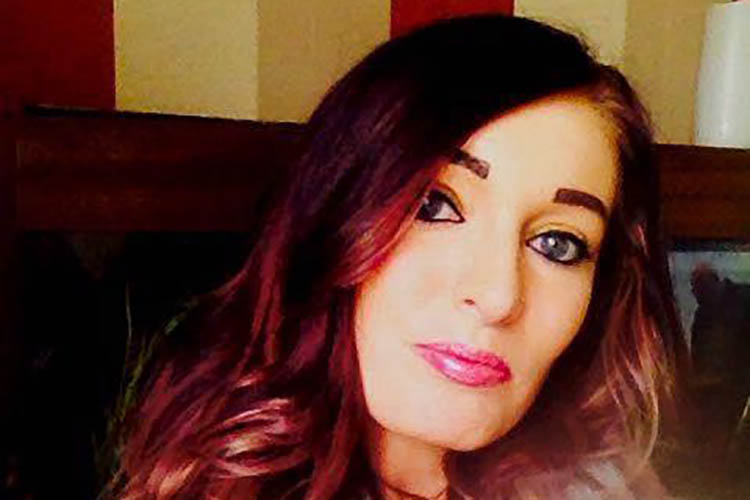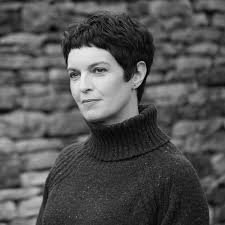
When domestic abuse leads to suicide, should it be called something else?
- West African leaders threatened military intervention in Niger after a coup.
- Italy’s defence minister said the country intended to leave China’s Belt and Road initiative.
- A Kansas farmer secretly planted 1.2 million sunflowers for his and his wife’s 50th wedding anniversary.
In a groundbreaking legal win, an inquest has for the first time returned a conclusion of “unlawful killing” in a case where a woman ended her life following months of domestic abuse by her partner.
When it is finally issued, the death certificate of Kellie Sutton, a mother of three who died aged 30 in 2017, will not say suicide. After a six-year fight by her family and following nearly two weeks of evidence at Hatfield Coroner’s Court, a jury decided that despite Kellie Sutton having taken the actions that ended her life, she was not responsible for her death. She was killed.
The jury also concluded that failings by Hertfordshire police after attending a domestic incident six weeks earlier may have contributed to her death.
Bad odds. Suicide is always complex. But links between domestic abuse and suicide are now increasingly recognised and were referenced for the first time in the UK government’s 2022 domestic abuse plan.
Although there is no exact figure for how many people take their own lives following domestic abuse, recent research published in the Lancet showed that someone who has experienced domestic abuse is nearly three times more likely to attempt suicide compared to the general population. If you are female, it’s ten times as likely.
A study of Domestic Homicide Reviews (which are commissioned after any death that has or appears to have resulted from domestic abuse) showed that:
- just over half of those who killed themselves in the context of domestic abuse had contacted a dedicated support service;
- a similar number had been to hospital specifically as a result of abuse;
- 90 per cent had a history of police contact; and
- nearly half had been referred to a multi-agency risk assessment conference (MARAC) which exclusively deals with high-risk victims.
Understanding how an abuser might be held responsible for his partner’s death when she has taken her own life requires an intimate understanding of what abuse can do to a person, says Sarah Dangar, who chairs Domestic Homicide Reviews.
Violence or coercively controlling behaviour can make a victim’s life “exceptionally narrow and claustrophobic and limited,” she explains. “As families have said to me, it’s almost not a decision to take their life. It’s about escaping the sustained, endemic abuse that’s infiltrated everything about their lives.”
Someone, Dangar points out, “is ultimately responsible for that abuse.”
New process. Inquests aren’t criminal or civil trials: they are official investigations into how someone died. In cases where the state – police, healthcare, social services – was aware of a risk to life, a coroner can hold the state accountable for its role in a death.
Sutton’s inquest is the sixth at which Sophie Naftalin, a pioneering lawyer at Bhatt Murphy Solicitors, has represented parents whose daughters have taken their own lives after being subjected to domestic abuse by a partner or ex.
Landmark cases like Sutton’s drag society into a new reality – or perhaps a new understanding of an existing but hidden reality:
- The jury’s “unlawful killing” conclusion has stretched the boundaries of what is conceivable for other coroners to decide about similar deaths.
- And it opens up new avenues for families seeking answers about what truly happened to their loved ones.
It’s not over. After Sutton died, Steven Gane was charged with coercive control and two counts of assault. He was convicted and sentenced to four years and three months. But Pam Taylor, Sutton’s mother, will not rest.
On the courtroom steps after the unlawful killing conclusion was returned, Naftalin read out a statement from Sutton’s family calling on the Crown Prosecution Service to charge Gane with unlawful act manslaughter, “so he can also be held accountable in the criminal court”.
Detective Chief Superintendent Amanda Bell, who leads Hertfordshire Police’s safeguarding command, said Kellie’s death was a tragedy and that the force accepted the findings of the inquest. It has set out to improve the way it supports victims.
Steven Gane was approached for comment.
Louise Tickle’s Slow Newscast Landmark ruling: the death of Kellie Sutton is available to listen now.
